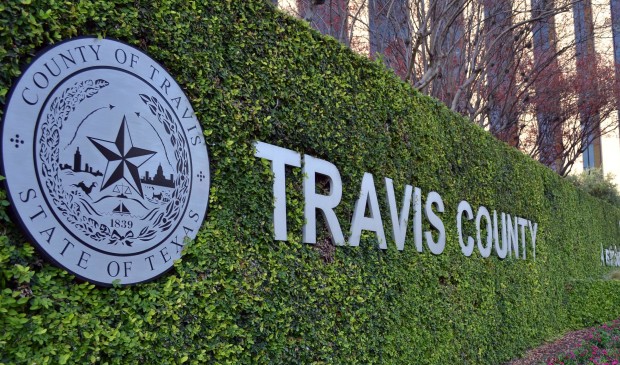Travis County to build diversion center aimed at reducing recidivism
Thursday, March 23, 2023 by
Seth Smalley The Travis County Commissioners Court passed a resolution Tuesday to create both a diversion center for mental health and substance use disorders as well as fund construction for a new central booking and intake facility.
During a press briefing on the matter, commissioners highlighted the role of the diversion center in reducing recidivism and detentions of those afflicted by mental health and substance use problems.
“Today the Commissioners Court affirmed our commitment to building a more equitable future where we provide mental health resources to the community,” said Travis County Judge Andy Brown. “We chose compassion over conviction and mental health over mental anguish.”
Brown thanked law enforcement partners, the Dell Medical School and the forensic mental health steering committee members for support in the development of the resolution.
“This facility will reduce the number of people entering the jail with mental health needs by offering the diversion center option and significantly reduce the number of people reentering jail. Just one day in jail can derail jobs and families and opportunities,” Brown said. “We can make our community safer and more stable when we help someone avoid the consequences of incarceration and instead connect them to needed services.”
Before the pandemic, around 21 percent of those jailed by the Travis County Sheriff’s Office had some kind of mental health issue, according to Brown, and it has nearly doubled since then. However, in places like Nashville, Tenn., where diversion centers have been implemented, recidivism rates have fallen.
“A diversion center provides options other than the emergency room or jail for law enforcement,” said Commissioner Jeffrey Travillion. “I support the diversion center, which is one of the recommendations made by the many professionals who contributed many hours of their hard work and expertise.”
Travillion noted that in other Texas counties that had diversion centers – such as Harris, Bexar, Dallas and Tarrant – the populations of people with mental health designations were in line with, or greater than, the Travis County jail’s.
“This demonstrates that Travis County is doing good things,” Travillion said. “We are incarcerating fewer people per capita in counties with diversion centers. We care about this issue and it shows the men and women working in the Travis County Correctional facility know the people dealing with mental health needs by name.”
County Attorney Delia Garza said that the toolbox is limited for diverting low-level, nonviolent offenders from the criminal justice system.
“We continue to see this revolving door happening, and the only way (to stop the cycle) really is to get to that root cause,” said Garza. “Our jails have really become a repository of failed policies.”
“Ultimately, working to remedy this problem makes Travis County safer and improves the overall health of our community,” Brown said. “This first phase is a win for mental health, and it takes us one step closer to ending the cycle of incarceration in our community.”
Editor’s Note: Andy Brown is on the board of the Capital of Texas Media Foundation, the parent nonprofit of the Austin Monitor.
The Austin Monitor’s work is made possible by donations from the community. Though our reporting covers donors from time to time, we are careful to keep business and editorial efforts separate while maintaining transparency. A complete list of donors is available here, and our code of ethics is explained here.
You're a community leader
And we’re honored you look to us for serious, in-depth news. You know a strong community needs local and dedicated watchdog reporting. We’re here for you and that won’t change. Now will you take the powerful next step and support our nonprofit news organization?








